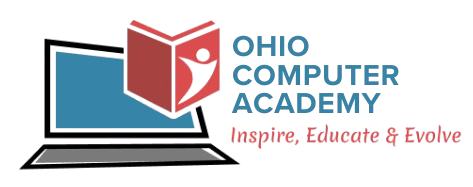This path is perfect for those starting from basic programming in Python and advancing towards machine learning and data science applications.
A Data Scientist is much sought after in all industries today. He is a data expert who uses scientific methods, processes, algorithms and systems to extract information and insights from structured and unstructured data, interpret and present the results to solve complex problems.
Ohio Computer Academy offers intensive and in-depth training to bring out the best in the students. The hands-on training from experienced instructors, helps in understanding all the concepts in and out.
A foundational course designed to introduce learners to the core principles of programming with Python, covering the basics of Python syntax, data structures, and control flow, and providing essential building blocks for more advanced data science and machine learning applications.
A foundational course aimed at learners who are new to programming and want to achieve certification in Python. This course covers the basics of Python programming, including syntax, data types, control structures, and functions, preparing participants for the PCEP certification exam.
This course is for learners with a solid grasp of Python fundamentals seeking to deepen their expertise. It covers advanced topics like object-oriented programming, decorators, generators, and essential data science libraries, equipping participants to tackle complex programming tasks and optimize their code for data science and machine learning.
The course aims to prepare participants for the PCAP certification and more complex programming tasks in data science and software development. It is designed for learners with foundational Python knowledge who are looking to advance their skills, covering topics such as object-oriented programming, exceptions, file handling, and modules.
This course teaches learners to apply Python to data science tasks, covering key libraries like NumPy, pandas, and Matplotlib for data manipulation, analysis, and visualization. Participants will work with large datasets, perform data cleaning, and build models, gaining practical skills for real-world data science and machine learning projects.
This course helps learners apply Python to develop machine learning models, covering key concepts like supervised and unsupervised learning, model evaluation, and essential libraries. By the end, participants will be able to build, train, and deploy models to solve real-world data challenges.
